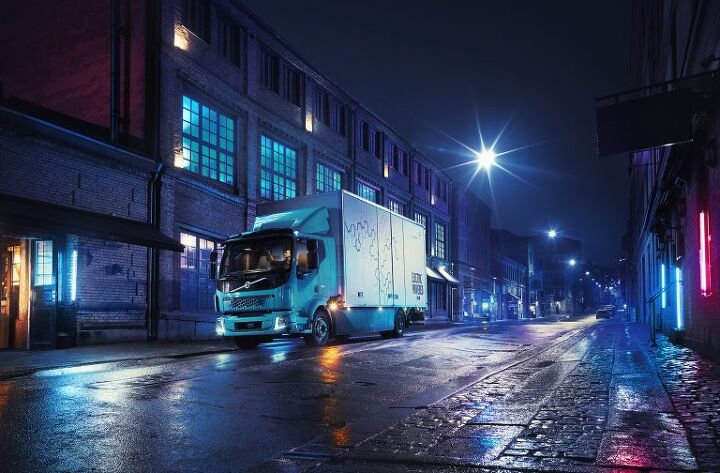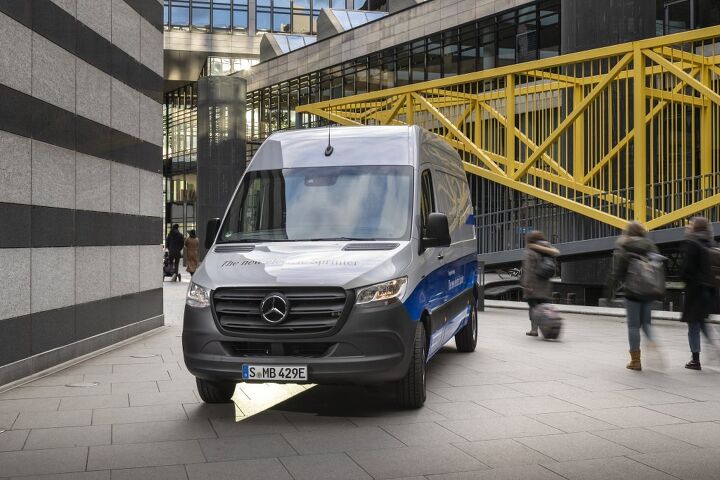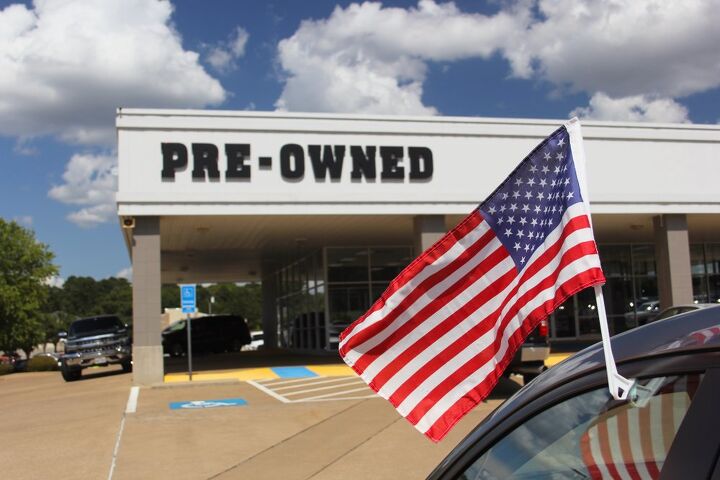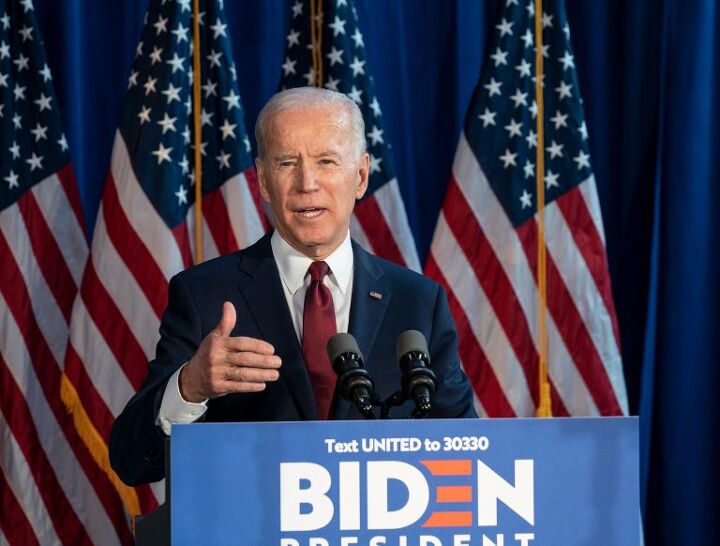#IndustryNews
European Truck Manufacturers Ending ICE Production in 2040
An alliance of European truck manufacturers have pledged to stop selling vehicles that produce any emissions by 2040 — pushing up its previous target date by a full decade.
The group, which includes Daimler, Scania, Man, Volvo, Daf, Iveco, and Ford, have all signed a pledge to focus on developing hydrogen and battery technologies so that petroleum-derived propulsion can be phased out of the trucking industry.
Automotive Alliance Manages to Delay Revised Massachusetts Right to Repair Law
The Alliance for Automotive Innovation (AAI) has managed to stall enforcement of a ballot measure recently passed in Massachusetts that expands access to data related to vehicle maintenance and repair. Last week, the relatively new lobbying/trade group asked a U.S. district court for a temporary order that would bar implementation of the state’s new right-to-repair rules aimed at giving vehicle owners more direct control of their private data and independent repair shops a fighting chance of staying in business. But the state’s attorney general has already decided that the rules are invalid until after federal cases have been decided.
The decision represents another victory for giant, multinational corporations at the expense of disgusting citizens interested in controlling their personal information and small business owners who have had it easy for far too long.
Mercedes Reportedly Shipping the ESprinter Stateside in 2023
Mercedes-Benz is reportedly planning to bring an electric commercial van, presumably the eSprinter, to the United States as early as the third quarter of 2023. While the all-electric van launched earlier this year in Europe, the manufacturer said it wanted to hold off on North American exports for reasons that should be obvious to anybody familiar with the industry. The model’s rather low range (up to 96 miles, depending on load and route) makes it a poor fit for North America’s wide-open spaces, as does its standard 75 mph (or optional 50 mph) top speed. Meanwhile, the necessary homologation efforts required to sell the eSprinter in the U.S. would only increase the price of a vehicle already ill-suited to the nation’s roadways.
Were it to come here now, we’d be looking at a cargo van with an MSRP dangerously close to $60,000 and the top speed and range of a small-displacement dirtbike. Regulatory incentives aside, it doesn’t seem like a worthwhile addition to the North American landscape. But analysts are worried that Mercedes-Benz needs to get a move on and ensure the vehicle comes to the U.S. market before it’s edged out by the competition. It’s a position we’d be inclined to agree with had the eSprinter arrived with more robust specifications.
Report: Japan May Ban Internal Combustion Vehicles Next Decade
The Japan Broadcasting Corporation, better known as NHK, reported that the island nation is considering banning new internal combustion engine cars by the mid-2030s this week. While we will continue to maintain that such an effort seems unrealistic when confronting the current realities of the market, Japan’s alleged plan offers a bit more leeway than proposals pitched in parts of Europe and North America. Nippon also finds itself in a better position in the preferred mixed approach of allowing mixed powertrains, which would allow the industry to continue production gasoline-driven hybrids.
For starters, the Asian country has a fairly comprehensive hydrogen fueling network thanks to its small size. It’s also in a position that would make nationwide EV charging more feasible than regions with plenty of wide-open spaces. But automakers aren’t making a peep on the issue, preferring to leave it up to regulators and the market.
Gas War: Ford Urges Other Automakers to Join the Californian Coalition
The Ford Motor Company is asking automakers to join it in supporting Californian vehicle emissions targets aimed at supplanting the rollback that was supposed to become the national standard. General Motors has already abandoned its support of the Trump rollbacks, which offered concessions to appease environmental groups but ultimately targeted more lax fueling regulation while seeking to eliminate California’s ability to self regulate as a way to curb its influence. But industry leaders are under the impression that a President Biden would attempt to swiftly transmission back to Obama-era regulatory targets or simply adopt the California model that’s been at odds with the national standards established by the Trump administration.
Considering how aggressive the Biden-Harris energy/environmentalism platform is, it certainly seems a plausible scenario and certain automotive executives feel that it would be best to go into 2021 aligned and supportive. The matter is even scheduled to be brought forward during Tuesday’s virtual auto trade association meeting.
Automakers Continue Battling Right to Repair Laws in Massachusetts
Despite Massachusetts voters approving a ballot initiative giving customers and independent repair shops more access to the massive amount of data being tabulated by modern cars by a sizable margin, automakers haven’t given up their unpleasantly consistent opposition to the right-to-repair movement. Backed by consumer advocates, unaffiliated repair shops, the aftermarket community, and those interested in D.I.Y. projects, the movement has made meaningful headway in MA under the updated laws. Vehicles that collect and transmit information back to the automaker manufactured for 2022 (or later) model year are now required to be paired with a standardized open-access data platform accessible by owners and anyone else they feel should have access.
But the automotive industry continues to claim these mandates would be impossible to comply with on such a short timeline and has launched a federal lawsuit that the revised rules create a massive security risk in terms of customer privacy and vehicle safety. We’re inclined to believe this is an easy way for legacy automakers to buy time so they can ultimately find ways of not adhering to the updated laws so they can continue benefiting from being the sole purveyor of the data. But we’re willing to entertain their case before making any final rulings — not that it will have any impact on the official case.
GM No Longer Building Nikola Electric Pickup, Nixes Equity Stake
On Monday, General Motors and Nikola Corp announced a revamped agreement that eliminates an equity stake in the startup for the Detroit automaker and nixed any plan for manufacturing Nikola’s electric pickup truck. This makes the keystone of the revised contract their collaborative work on fuel-cell development, represents a major setback in their partnership, and makes GM management look like rubes for having announced a sizable commitment that had to be walked back after a short seller claimed Nikola was fraudulently representing itself.
Despite having much to gain by torpedoing the EV startup’s curiously high share price, the associated Hindenburg report raised serious questions about exactly how much progress Nikola had made. The short seller effectively accused the company of fraud, something Nikola denied. Though subpoenas from the Securities and Exchange Commission and Department of Justice still began arriving at its offices in late September. Founder and former executive chairman Trevor Milton stepped down around this period. At the time, the company said it was cooperating with the investigations “and will continue to cooperate, with these and any other regulatory or governmental requests.”
UN Panel Decides Japan Violated Carlos Ghosn's Human Rights
The United Nation Human Rights Council’s Working Group on Arbitrary Detention issued a report on Monday stating that Carlos Ghosn’s extended detention in Japan was an unacceptable infringement on his rights — adding that the matter would be forwarded to the UN’s rapporteur on torture, cruel and other inhuman or degrading treatment.
While there are undoubtedly larger examples of human rights abuses inside the automotive industry — Volkswagen’s apparent reliance on Chinese slave labor springs to mind — Japan’s bizarre treatment of the former head of the Renault-Nissan alliance garnered plenty of attention. Accused of financial crimes relating to the Japanese automaker he formally chaired and was once praised for saving, Ghosn was subjected to repeated arrests and strict limitations on who he was allowed to contact. Despite his having fled the country in a form befitting of a secret agent, the UN is still claiming his treatment ahead of the repeatedly delayed trial was tantamount to abuse.
NADA Chairman Doesn't Seem to Like Traditional Auto Dealers Much
Unless you happen to be the primary stakeholder in Amazon, 2020 probably hasn’t’ been the kind of year you’re likely to miss. However, there is no shortage of lobbyist groups and trade organizations willing to praise it as a triumphant time for modernity. This includes the National Automobile Dealers Association (NADA) Chairman Rhett Ricart, who believes digitizing the industry is the best pathway forward. While he hasn’t forgotten that pandemic-related lockdowns closed showrooms and factories, resulting in extremely lean inventories and weak sales, he claims it has accelerated everyone’s willingness to utilize online sales formats.
But there’s little reason to assume such a move would be better for dealerships from our vantage point. Haggle-free, direct pricing and ordering over the internet removes a lot of what the showroom does. This new model runs the risk of obliterating smaller storefronts and relegating the rest into glorified service centers doubling as a delivery hub.
FCA, PSA Group Schedule Shareholder Meetings to Finalize Merger
The merger between Fiat Chrysler Automobiles and PSA Group is reportedly progressing smoothly, with the involved parties announcing general meetings for their respective shareholders on Wednesday. Scheduled to take place on January 4th, the summit is being held “in order to approve the merger of their companies to allow the creation of Stellantis, which will become the world’s fourth largest automobile manufacturer by volume,” according to a joint release.
Progress, Thy Name is ZETA: New Electric Vehicle Lobbying Group Hits the Scene
If you think the political class is interested in what kind of policies citizens would like to see implemented, you’ve clearly never heard of lobbying groups. While we’re stuck at home writing thoughtful letters to congressional interns in the faintest hope that they’ll be dictated to a senator, corporately supported lobbyists are taking legislators out to dinner so they can discuss how best to govern on a single issue. They’re important in determining the trajectory of the nation but many get criticized for placing the needs of the business over that of the individual voter.
Buckle up, because we’re getting another one. On Tuesday, the Zero Emission Transportation Association (ZETA) held its own coming-out party and announced its mission to advocate for “national policies that will enable 100 [percent] electric vehicle sales throughout the light-, medium-, and heavy-duty sectors by 2030.”
Reinventing the Wheel: Daimler Intentionally Becoming a Smaller Company to Facilitate Tech
Daimler Chairman Ola Källenius went against the grain on Thursday by admitting the company he’s been tasked with overseeing will become significantly smaller in five years. That’s normally not the kind of thing you want to telegraph to shareholders via the media but he’s convinced this is the best course of action for the business.
“The next five years we will become a smaller company,” Källenius told Reuters. “We will have a fundamental change in the industrial footprint on the powertrain side.”
The future of Daimler apparently involves a half-decade metamorphosis into a services-focused software company that just so happens to build vehicles. But the vehicles won’t be those internal-combustion jobs that you grew up around. Instead, they’ll be hyper-efficient electrics from Mercedes-Benz as it re-imagines luxury within the strict confines of environmental sustainability. As a byproduct, Daimler will need fewer employees to help manufacture automobiles.
Gas War: California Regulators Say Biden Should Embrace State's Emission Plan
While multiple states launch mandatory election recounts and President Trump throws around lawsuits like confetti Joe Biden and the mainstream media are preparing for his ascension from regular old man to Leader of the Free World — though that title doesn’t seem to get much play these days. Biden has already started holding meetings with foreign leaders and experts on how to go about heading the United States. Apparently, there’s even been some progress on how to govern the nation.
On Thursday, California Air Resources Board (CARB) Chairwoman Mary Nichols said the state’s arrangement with major automakers over fuel efficiency requirements would be ideal for the presumed Biden administration — which has promised to implement some of the most ambitious emissions standards the world has ever seen. Nichols also expressed excitement at the possibility of heading the U.S. Environmental Protection Agency (EPA) under a Biden presidency and is reportedly under serious consideration for the position.
Gas War: Biden Selects 'Obama All Stars' for Transportation Department, EPA
With America currently split between people arguing about how seriously the 2020 election needs to be investigated, there hasn’t been much in the news about cars beyond the omnipresent background hiss of manufacturers promoting green vehicles they have yet to build. That leaves us having to belly crawl through journalistic muck in the hopes of finding a morsel of useful information. Fortunately, we located a crumb worth saving in Joe Biden’s transition teams for the Environmental Protection Agency and Transportation Department.
A Biden administration means bringing back Obama all-stars in a concentrated effort to restore that era’s regulatory standards. That entails flipping just about every single initiative launched by President Trump, including the national fuel rollback that’s at the heart of the Gas War. Biden has also said he would reenter the Paris Climate Accords, gradually abandon fossil fuels, and “establish ambitious fuel economy standards” surpassing anything the nation has seen before.
German Auto Lobby Wants Biden to Eliminate U.S. Trade Restrictions
Germany is eager to see the United States abolish trade barriers implemented by President Donald Trump now that it looks like Joe Biden has won the 2020 election. While that could all be undone by the sudden influx of legal actions taken by the Trump campaign as presumptive evidence of election impropriety streams in, Germany would still like to get the ball rolling on trade with the Democrats.
The nation’s automotive industry is petitioning leadership in the U.S. and European Union to align technical/regulatory standards and minimize the existing trade barriers. The German Association of the Automotive Industry (Verband der Automobilindustrie) or VDA has already endorsed the proposal with the lobby group’s president confirming its position in a recent webcast hosted by the Frankfurt business media club ICFW (Internationale Club Frankfurter Wirtschaftsjournalisten).





























Recent Comments